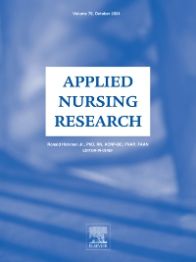
Editor's Note A revised legal standard for assessing medical negligence in the US shifts away from customary medical practice and toward a more patient-centered definition of reasonable care, according to a February 26 letter published in Jama Network. Following a 2024 update from the American Law Institute, the new framework…

Editor's Note A study led by researchers at Yeshiva University showed an educational intervention program significantly improved perioperative nurses’ understanding of pressure-injury prevention, with the benefits lasting for at least six months following the training. Results were published August 23 in Applied Nursing Research. Conducted among 354 nurses from 11…

Editor's Note Early-onset colorectal cancer (EO-CRC), diagnosed before age 50, is increasing in incidence worldwide. Despite existing postoperative colonoscopy surveillance strategies, the optimal intervals for EO-CRC patients are unclear due to limited long-term data. This study, titled “Early-onset Colorectal Cancer Patients Do Not Require Shorter Intervals for Post-surgical Surveillance Colonoscopy”…

Editor's Note Although intraoperative wound irrigation is a common practice worldwide for preventing surgical site infections, a recent study suggests irrigation with polyhexanide solution should not be recommended as standard clinical practice in open clean-contaminated surgical procedures. Published February 21 in Jama Surgery, the study cautions that additional trials are…

Editor's Note Spine surgeons are sounding the alarm about high numbers of unnecessary fusion surgeries, according to a March 5 report in Becker’s Spine Review. Unnecessary surgeries refer to any surgical intervention that is not needed or in the patient’s best interest. A recent report from Forbes finds that 50%…
Editor's Note This study led by nurse researchers from the Ohio State University College of Nursing, Columbus, examines the capacity of medical-surgical nurse leaders to implement evidence-based practices (EBPs) into their organizations. Using a cross-sectional design survey methodology, the researchers found that: Senior nurse leaders reported higher EBP attributes compared…

She is the person who says, “Show me the evidence,” says Brigid Gillespie, PhD, BHlth Sc (Hons), RN, a conjoint professor of Patient Safety in Nursing at the Gold Coast University Hospital and Griffith School of Nursing and Midwifery in Queensland, Australia. Gillespie spoke to OR Manager about the role…
Editor's Note In a JAMA Internal Medicine study involving more than 7,000 COVID-19 patients, titled “Racial and Ethnic Discrepancy in Pulse Oximetry and Delayed Identification of Treatment Eligibility Among Patients With COVID-19” and published in May 2022, researchers found that pulse oximetry, which measures blood oxygen saturation levels and is…

Even before the pandemic, many OR leaders struggled to maintain adequate staffing. However, COVID-19 has undoubtedly aggravated the situation, with many nurses choosing to exit the profession, leave the hospital setting, or seek higher wages as a per diem traveler. As OR leaders work to fill open positions, they may…
Editor's Note This study, led by researchers at the Smidt Heart Institute at Cedars-Sinai Medical Center, Los Angeles, finds that from August 2020 through September 2021, 7% of lung transplantations in the US were performed in patients with COVID-19-related respiratory failure. In this analysis of 3,039 lung transplants, 214 were…